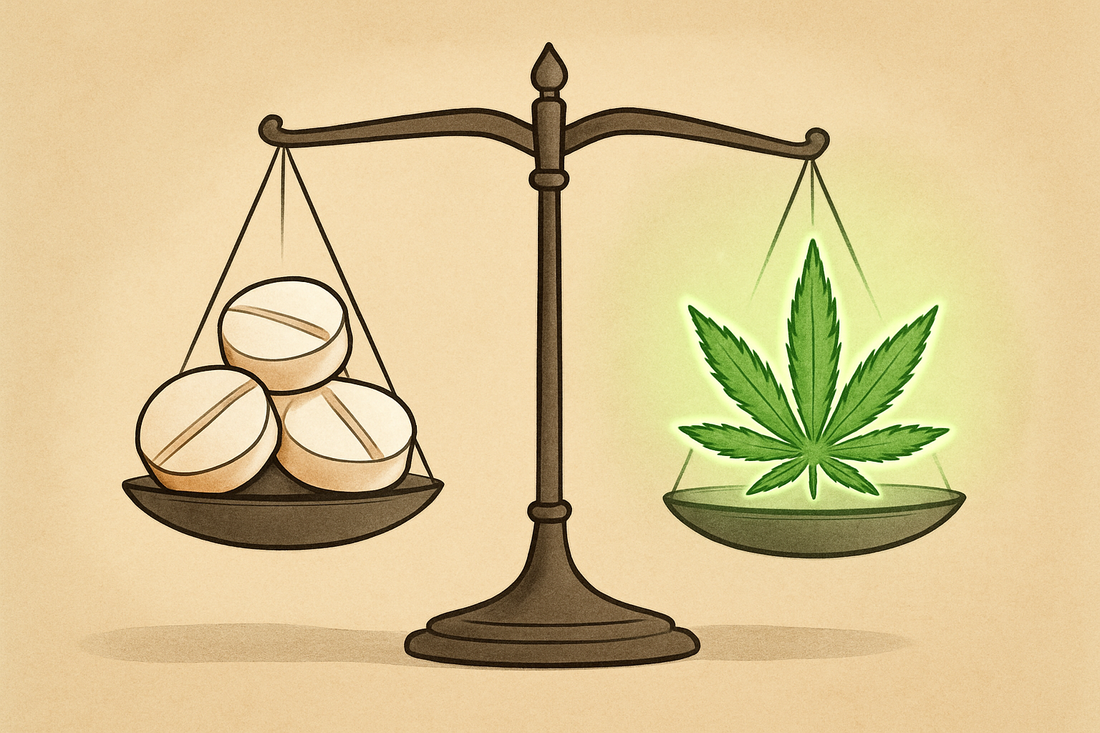
Cannabis and Opioids: What the Research Says About Safer Pain Relief
Chronic pain affects millions of Americans, and for decades opioids have been the standard prescription. But opioids carry well-known risks — dependence, tolerance, and overdose. Researchers have been asking an important question: could cannabis help patients reduce their reliance on opioids?
Two studies, five years apart, offer insight. One review looked at thousands of patients across North America and Australia. The other tracked patients in a prospective study for a year. Both point to the same conclusion: cannabis may have a role in reducing opioid use for some patients.
The 2020 Review: Thousands of Patients, Broad Patterns
In 2020, researchers analyzed nine studies involving over 7,000 participants who were using opioids for chronic non-cancer pain.
Findings included:
- Patients reported 64–75% reductions in opioid dosage when using cannabis.
- 32–59% said they substituted cannabis for opioids altogether.
- Some studies noted fewer ER visits and hospitalizations.
Cautions: The review relied heavily on self-reported data, with wide variations in cannabis dosage and inconsistent reporting of side effects. While results were promising, the authors urged caution and called for more rigorous research.
The 2025 Study: Real-World Clinical Evidence
In 2025, a prospective clinical audit followed 155 chronic pain patients on opioids. Of these, 102 were prescribed cannabis oil in addition to opioids, while 53 continued opioids only.
Results after one year:
- Median opioid use in the cannabis group fell from 40mg/day to 2.7mg/day.
- The control group stayed the same, around 42mg/day.
- Patients using cannabis also reported better sleep and reduced disability.
- Nearly half of the cannabis group discontinued, showing that it’s not effective or tolerable for everyone.
This smaller but carefully designed study adds weight to the earlier, broader survey findings.
Putting the Evidence Together
Taken side by side, these studies show a consistent trend:
- Cannabis can help many patients cut back on opioids.
- Results aren’t universal — not everyone benefits.
- More research is needed to determine the best dosing, methods, and long-term safety.
It’s worth noting that these studies involved cannabis prescribed in medical settings. But the findings speak to a broader truth: cannabis in its many forms is increasingly being studied for its role in pain management.
Closing Thought
Opioids remain a powerful but risky tool for chronic pain. These studies suggest cannabis could be part of the solution, offering a safer adjunct for some patients. As the science continues to grow, cannabis is proving to be more than a cultural conversation — it’s a medical one, too.
